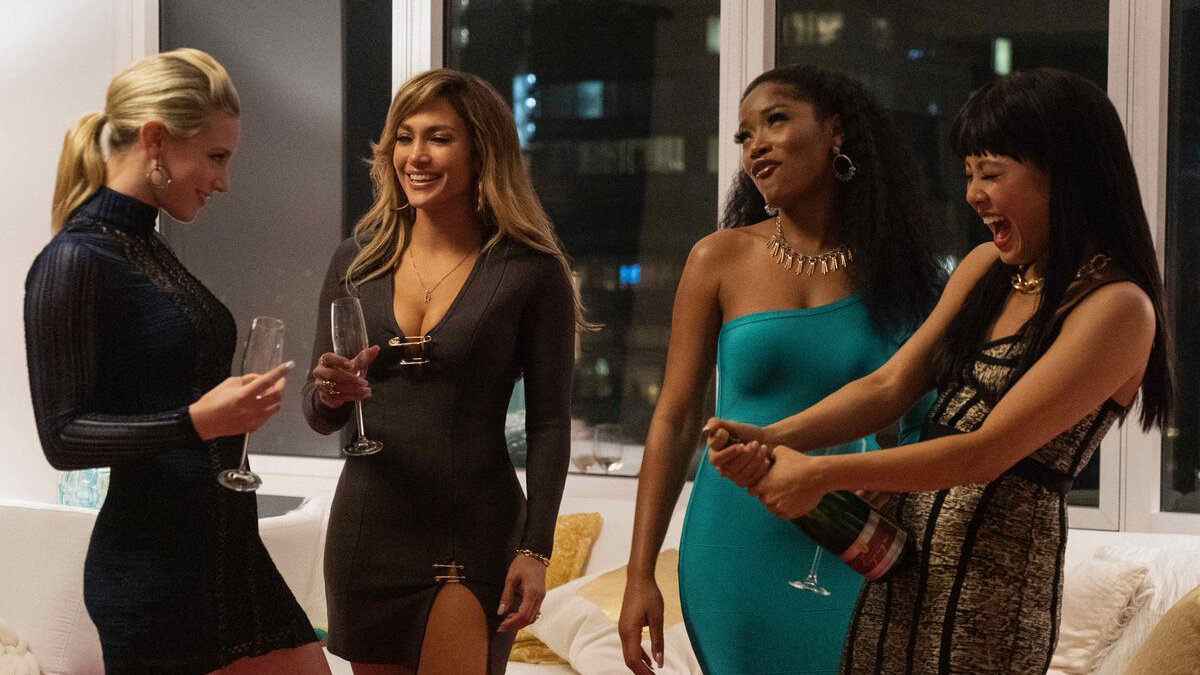Review: Strong Performances and Vigilante Justice Lead the Way in ‘Hustlers’
“This whole country is a strip club. You got someone throwing the money, and someone doing the dance.”
The 2008 Financial Crisis brought the nation to its knees. It was a catastrophic event that wiped away retirement funds, decimated savings accounts, and foreclosed homes across the nation. Work forces across the nation felt the brunt of the crimes committed by Wall Street bankers. Included in the collateral damage were strippers. New York magazine’s 2015 article “The Hustlers at Scores” by Jessica Pressler brought to light how this sect of sex workers responded to the crisis: by drugging their Wall Street clients and running up charges on their credit cards.
Morally askew at first glance, this tale of vigilante criminal justice rationalizes these acts by playing Robin Hood and stealing from the misogynistic bankers that ruined the lives of so many, ultimately becoming the central depiction in Lorene Scafaria’s new film Hustlers. Without crossing the line, the film succeeds at differentiating between extracting justice on scummy CDO traders and poaching innocent targets in their scheme, giving the film an outside-the-purview-of-law moral standing. From there, Hustlers builds a comedic rendition of events where female camaraderie takes center stage and a group of strippers dole out justice that the federal government never did.
It doesn’t take long to see that the true winners here are the actresses. In this tale of greed and vigilante justice, everyone has a role and those roles ebb and flow as the money pours in. Constance Wu showcases great range, expressing vulnerability, confidence, remorse, and success throughout the film as we trace her rise and fall in the lead role of Dorothy. Lili Reinhart and Keke Palmer play supporting accomplices in the swindling racket who provide additional humorous texture. Hell, there’s even Cardi B and Lizzo in the mix, and if anything we didn’t get enough of either.
But above everyone else is Jennifer Lopez. Working men under her thumb, she excels as the matriarchal Ramona, constantly pursing her own form of justice without remorse and getting paid in the process. Her greed and head strong attitude never crosses into betraying her female friends, of which she only seeks to protect. As the ring leader, she is a monolithic force and the true standout of Hustlers, showing that if given the proper material, she can be an on-screen gravitational force that steals the show.
The first half of Hustlers is reminiscent of Magic Mike XXL. Not only because it’s about strippers, but because of how it replicates the same sense of camaraderie among the girls; despite external plights, they still find ways to have fun and support one another, and when they’re on their ascent, the film is at its strongest. The second half of the film is like The Wolf of Wall Street or Goodfellas, where the hustlers fly too close to the sun and have their racket busted up.
That first half isn’t so much concerned with how these characters will meet their undoing which makes it the most momentous and carefree. It’s them playing Robin Hood and it’s gratifying to see strippers extract due justice on Fin-Bros who are oblivious to their own repugnant action. The later half loses its momentum when it gets in the weeds of a crime drama, shedding its jubilant vibe to punish the girls for their misdeeds. When it reaches that point, the narrative calls for this kind of story beat, and it’s not to say it is unwarranted or unearned, but rather I found the ascent to the top significantly more fascinating, engaging, and enjoyable than their decline, of which is rather conventionally told.
This is a tale of the underclass, the underprivileged, and the underserved. Set against the Financial Crisis, it underscores who pays when those at the top carelessly drive off a cliff. To see any form of fractional justice carried out against those who got away without even a slap on the wrist is perhaps the only consolation we can have for a nation that saw nothing change, and a forewarning message for future social and governmental institutions. But as the film’s final line unfortunately reminds us all, there will always be someone on the top, and someone on the bottom.
—

